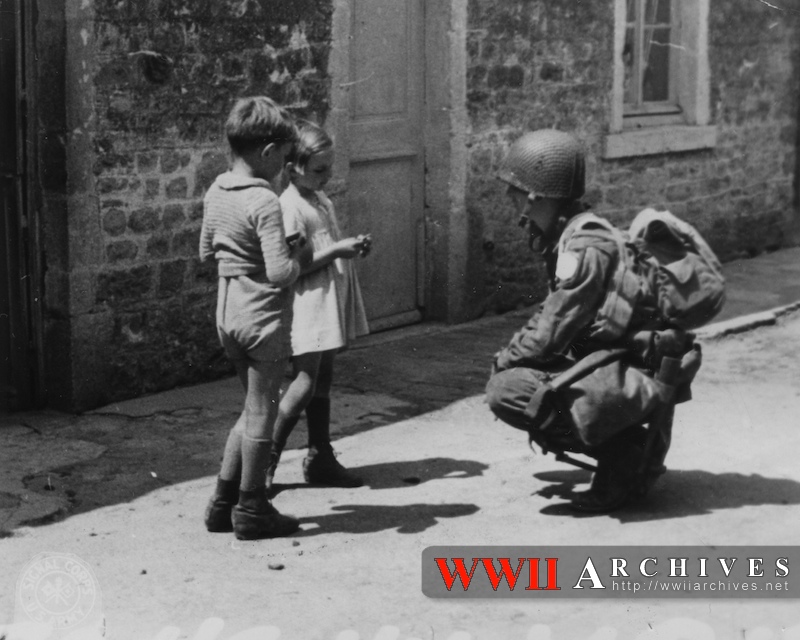|
The pose looked familiar – Americans unloading water from an aircraft carrier to the stricken islands of the Philippines.
It brought me back to the United States of my early childhood, toward the end of World War Two: not so much the fighting, but the recovery. When I was five, this was one face of America – G.I. Joe passing out chewing gum to the children of Normandy. Later we saw photos of Americans liberating concentration camps. Perhaps it was a simplistic image, maybe even manipulated, but it was what we thought of the country, of ourselves. The Marshall Plan, the GI Bill, the post-war hopefulness, only reinforced that image. We took care of others; we took care of our own. The news that the United States was dispatching the carrier George Washington to the east coast of the Philippines struck a familiar chord. Better than chewing gum – tons of water and medical supplies, delivered by helicopter to Leyte and Samar. It reminded me that when the nihilists struck on 9/11, I got emails from friends in Japan and Mexico and France, asking, “Are you all right?” We were all in it together. I am reminded of that when I hear an American president remind us what soldiers know. You take care of your own. The current president comes from that American heritage when he talks about the need for a more national health care. Even with the technical glitches – SNAFU, they called it during the war – the goal is to keep all of us away from the emergency room, to address hunger and illness in the early stages, while there is still time. The American president reminds me of G.I. Joe. The people who sabotage him do not.
Altenir Silva
11/17/2013 10:48:46 am
Dear George,
ColoComment
11/17/2013 10:51:04 am
"I am reminded of that when I hear an American president remind us what soldiers know. You take care of your own."
Peterk
11/17/2013 10:54:12 am
"The people who sabotage him do not." ain't no one sabotage him, but hisself. The Democrats and the President own this mess, can't blame it on the Rs because not a one voted for it.
Dave Hilsheimer
11/17/2013 01:49:02 pm
Why is it that we have transformed from the "greatest" generation to the "gimme" generation?
Ed Martin
11/17/2013 03:05:02 pm
George, I am privileged to read your thoughts. There are a special breed of haters who comment on public policy and those of us who delve in it, know them all too well. Vinnie from Brooklyn is a saint by comparison. A voux sante.
CG-23 Sailor
11/17/2013 04:30:32 pm
You take a shining example of American can-do... the relief aid to the Philippines by our military, and you use it as a club to support a very Anti-American president and his socialist American - ruining policies like Obama care.
George Vecsey
11/18/2013 12:37:50 am
Dear CG-23 Sailor: When did taking care of others become a bad word like socialism? In a complicated world, something like a national health plan would seem to qualify as sharing and caring for brothers and sisters.
ColoComment
11/18/2013 05:35:37 am
"...become a bad word like socialism?"
George Vecsey
11/18/2013 05:41:38 am
With all due respect, "it used to be" implies a very long time ago, before corporations ran health care and food delivery and many other parts of life. I'm not advocating quote-socialism-unquote. But communal action takes different form. I would submit that general access to health care is one of them -- with everybody who can paying something. On this very day, (I am in the middle of Old Person Medicare-Drug Company-Doctor-Hospital Bureaucracy Hell) I find the govt more efficient and transparent than the drug companies. I'd hate to be poor, or underskilled. But worse, I would hate to rely on the potential charity of strangers.
tom charles
11/18/2013 02:12:09 pm
Hi George
George Vecsey
11/18/2013 02:48:53 pm
Tom, thanks. I don't want to make this a one-party or one-viewpoint site -- too much of that around, and I value the generally civil tone from people who disagree -- but sometimes I need to say what I think. 11/19/2013 05:17:57 am
When all the money in this country is in the hands of the 87 billionaires that this unprecedented transfer of wealth has created, I, too, like my father, would not want to have to rely on the Koch brothers or Halliburton to give me well-care checkups or a colonoscopy. Oh, wait. They are already doing that. 11/24/2013 11:26:52 am
My wife and most of my friends claim that they need a cup of coffee to start their day. As a life-long, non-coffee drinker, I kick start each day by logging on to George’s blog.
George Vecsey
11/25/2013 07:50:26 am
Alan, thanks, but I didn't mind the political point of view of a few respondents. It's a touchy subject. I'm pleased they found my little site, and cared to object. best, GV Comments are closed.
|
Categories
All
|











